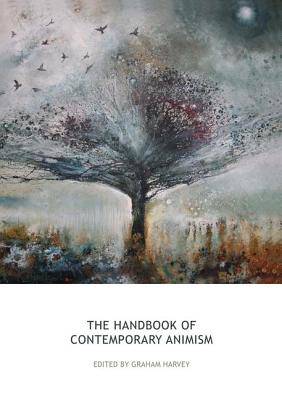
- Afhalen na 1 uur in een winkel met voorraad
- Gratis thuislevering in België vanaf € 30
- Ruim aanbod met 7 miljoen producten
- Afhalen na 1 uur in een winkel met voorraad
- Gratis thuislevering in België vanaf € 30
- Ruim aanbod met 7 miljoen producten
Zoeken
€ 67,95
+ 135 punten
Uitvoering
Omschrijving
Animism is an important part of many religions - from Shinto, Hinduism and Buddhism to Paganism and a range of indigenous religions - which connects the spiritual and material and holds that humans might not be unique in possessing souls or in being intentional agents. Over recent decades, research into animism has broadened its scope to consider, at one end, the vibrant roles of objects in human lives and, at the other, the possible similarities between humans and other species. "The Handbook of Contemporary Animism" brings together an international team of scholars to examine the full range of animist worldviews and practices. The Handbook opens with an examination of recent approaches to animism. This is followed by evaluations of ethnographic, cognitive, literary, performative, and material culture approaches as well as advances in activist and indigenous thinking about animism. "The Handbook of Contemporary Animism" invites readers to think creatively and critically about the world around us and will be invaluable to students and scholars of Religion, Sociology and Anthropology.
Specificaties
Betrokkenen
- Auteur(s):
- Uitgeverij:
Inhoud
- Aantal bladzijden:
- 592
- Taal:
- Engels
- Reeks:
Eigenschappen
- Productcode (EAN):
- 9781138928978
- Verschijningsdatum:
- 9/06/2015
- Uitvoering:
- Paperback
- Formaat:
- Trade paperback (VS)
- Afmetingen:
- 188 mm x 244 mm
- Gewicht:
- 1088 g

Alleen bij Standaard Boekhandel
+ 135 punten op je klantenkaart van Standaard Boekhandel
Beoordelingen
We publiceren alleen reviews die voldoen aan de voorwaarden voor reviews. Bekijk onze voorwaarden voor reviews.











